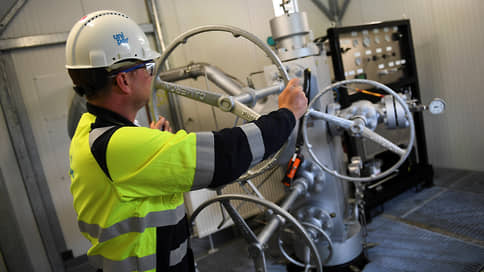Berlin takes energy into its own hands – Newspaper Kommersant No. 174 (7375) of 09/21/2022
[ad_1]

Germany in the coming days may buy a 78% stake in the German Uniper from the Finnish Fortum in the hope of saving its largest energy supplier from bankruptcy. Fortum apparently won’t get anything for its stake, but will be able to recoup the €8bn allocated to Uniper in the summer. Berlin had to go for the nationalization of the company in order to support the country’s energy sector in a crisis caused by a reduction in gas supplies from Russia.
The German government intends to buy a majority stake in the largest national energy company Uniper. The deal can be called historic, as it is designed to prevent the company’s complete bankruptcy and to prevent a collapse in the energy market. The parties do not yet name the exact share that the German government will receive, but it is likely to be more than 90%, since the current majority shareholder, Finnish Fortum, will completely sell its 78% stake. Retail investors own about 6% of Uniper’s shares. Quotes of the company’s shares rose on September 20 at the Frankfurt Stock Exchange by 4.4%, to €4.16 per share. Since the beginning of the year, the capitalization of Uniper has fallen almost 10 times.
Uniper announced on September 20 that it is finalizing negotiations with the German government on a package that will include an increase in capital by €8 billion. As a result, the total package of state loans and assistance and Uniper’s equity will amount to about €29 billion.
Fortum, which, despite the active resistance of Uniper, has been seeking control over the German company since 2017, spent a total of €6.2 billion on the purchase of its stake. Now, apparently, it will have to part with it at a symbolic price. According to Fortum, the deal will include “the return of funding provided by Uniper” in the summer, in the amount of €8 billion.
Uniper, as the largest buyer of Russian pipeline gas, found itself in the most difficult position after Gazprom cut gas supplies to Germany via Nord Stream. As a result, Uniper had to buy expensive gas on the spot market to fulfill its contracts with domestic consumers. Due to rising prices on world markets, the company is losing about €100 million per day. In July, Berlin drew up a separate rescue package for the company, under which it planned to acquire a 30% stake in Uniper.
In Russia, Uniper controls 83.73% of the Unipro generating company, which operates five 11 GW hydroelectric power plants. Uniper has announced its intention to sell these assets, but there is no clear understanding of what will happen to them after the complete transfer of control over Uniper to the German authorities.
As Kommersant wrote on August 9, the top management of Unipro was negotiating with a number of interested parties, among them, according to Kommersant, were Gazprom Energoholding, Inter RAO and AFK Sistema. But in August, a decree of the President of the Russian Federation was issued, which until December 31 prohibits Western investors in the fuel and energy complex and energy from leaving Russian business except with special permission. According to Kommersant, Unipro PJSC is still on the list of companies with which any transactions are prohibited. Uniper did not confirm this information, refusing to comment on the course of negotiations on the sale of assets.
After the start of the military conflict in Ukraine, the German government took control of the trading assets of the Russian Gazprom, Gazprom Germania, and in September, a subsidiary of Rosneft, which controls 12% of German oil refining. The Russian authorities have not yet taken symmetrical response measures.
In the coming months, following Uniper, we may see the nationalization of other large energy and trading companies, including the German VNG AG and SEFE GmbH (formerly Gazprom Germania), the British Centrica, the French EdF, the Czech CEZ, Sergei Kondratiev from the Institute of Energy and Finance believes. In his opinion, the nationalization will not necessarily be associated with the deterioration of the financial situation in these companies, but also with the desire of governments to gain control over their operations and energy prices.
[ad_2]
Source link





